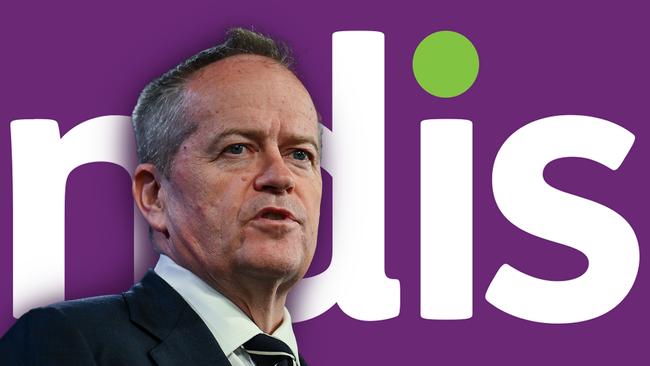NDIS reforms to ‘offset’ $14bn cost blowout since last budget
Reforms to the NDIS will save $14bn over four years and bring it back to sustainability — but only if the Albanese government can cut a deal with the states.

Planned reforms to the NDIS including having the states deliver more support to children with autism and developmental delay in schools and childcare is projected to shed more than $14bn from the scheme’s budget over the next four years.
But this will be offset against hefty cost overruns projected since last year’s budget, the Albanese government says.
The National Disability Insurance Scheme is now the government’s third largest payment, the budget papers show, costing an estimated $48bn next financial year and $60bn by 2027-28. Over the four years of the forward estimates it will cost $218bn, with average annual increases of 9.2 per cent.
This significant annual increase comes despite projected future reforms to the NDIS, including a number outlined in a review of the scheme commissioned by the government and delivered late last year.
Key among these is to shift a range of “foundational supports” for some people with disabilities outside the scheme, including those with less severe forms of autism and developmental delay, many of them children. These would be delivered in settings such as schools and childcare.
The government has yet to formally respond to the review, but has committed along with the states at national cabinet to achieve a cost growth target of 8 per cent commencing in 2026 as part of an “NDIS Sustainability Framework”.
The budget notes NDIS scheme costs were running significantly ahead of last year’s budget, with scheme numbers hitting more than 640,000 and growing.
“The NDIS actuary projected that without further action, NDIS payments would increase by $14.4bn over four years from 2024-25,” the budget papers say.
“The NDIS reforms being undertaken by the government are expected to moderate this additional growth … and ensure the NDIS remains on track to achieve (the target) agreed by national cabinet.
But there is a significant caveat.
“The realisation of the financial projections of the NDIS is dependent on the successful implementation of the financial sustainability framework, including the passage of (new legislation) and subsequent changes to NDIS rules and other legislative instruments,” it says.
Achieving this within the required time frame will be difficult, with the scope of “foundational supports” to be offered outside the scheme the subject of ongoing negotiation between the state and federal governments.
These negotiations are not expected to be finalised until the second half of this year, with the implementation slated for mid-2025, leaving little time for a significant budget impact.
NDIS minister Bill Shorten said the overall net impact of the proposed scheme reforms set against the NDIS actuary’s projection was that “costs for NDIS supports have increased by $1.5bn over five years since the mid year economic and fiscal outlook.”
Mr Shorten said the some of the new measures funded in the budget, including support for a crackdown on fraud, would “ensure every dollar of funding goes to those who need it most.”
“For much of its first 10 years the NDIS was left to grow in a rapid, haphazard way, with unchecked fraud and inadequate regulation and safeguarding,” he said.
Jim Chalmers said the NDIS had “delivered life-changing support for people with disability.”







To join the conversation, please log in. Don't have an account? Register
Join the conversation, you are commenting as Logout